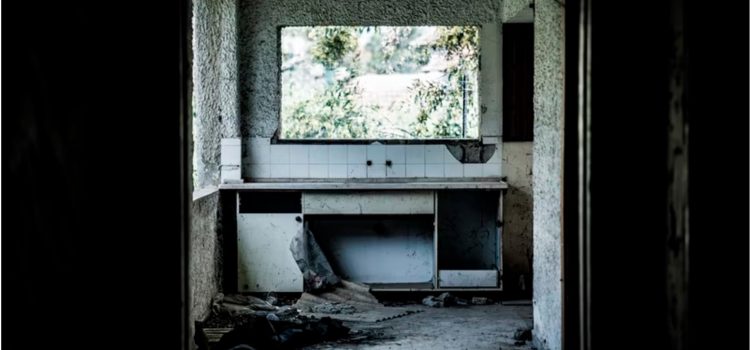

This article is an excerpt from the Shortform book guide to "The Sun and Her Flowers" by Rupi Kaur. Shortform has the world's best summaries and analyses of books you should be reading.
Like this article? Sign up for a free trial here.
How did Rupi Kaur’s experience of sexual abuse shape her poetry? What do Kaur’s poems express about trauma?
In one of her bestselling books of poetry, The Sun and Her Flowers, Rupi Kaur gives readers a raw, painful glimpse into her experience with sexual abuse. Her writing reveals three different perspectives on this traumatic experience.
Read on for an explanation of the three perspectives on Rupi Kaur’s sexual abuse.
Understanding Rupi Kaur’s Traumatic Experience
In addition to other areas of her life, the “Falling” section of The Sun and Her Flowers explores Rupi Kaur’s sexual abuse, including feelings of emptiness, depression, and anxiety. A major source of Kaur’s empty feelings come specifically from this sexually traumatic experience in her past. Kaur’s uncle raped her when she was a child; a traumatic experience that made sex and intimacy extremely difficult for her for a long time. Kaur talks about this experience from three different perspectives.
Perspective #1: Social and Cultural Causes
Rupi Kaur links the sexual abuse back to both personal and deeper sociocultural roots. In her own home, Kaur describes the effect of strict misogyny—how men tried to make her meek and submissive and didn’t respect her right to say “no.” Kaur suggests that this mentality empowered and enabled her rapist uncle at home and that the same misogyny continues to enable many more rapists in society at large. In particular, Kaur claims that cultural norms of shaming women for being sexual or praising them for their virginity contribute to a culture that enables rapists. These ideals, she expresses, give men the sense that they have the right to control women’s bodies and sexuality—and rape is an expression of that control.
(Shortform note: Kaur explicitly says that shaming women for sex or praising their virginity contributes to “rape culture”: a culture that enables, excuses, and empowers rapists. The idea of rape culture originally comes from second-wave feminist works written in the 1970s. Books like Susan Brownmiller’s Against Our Will redefined rape not as a passionate crime committed for sexual purposes, but rather as a violent crime committed to control and intimidate women. From this perspective, rape, shaming women’s sexuality, and praising women’s virginity are all means to the same end of controlling women—therefore, sex-shaming or virgin-praising passively endorses or even actively promotes rape.)
Perspective #2: Emotional Impact
Rupi Kaur also talks about the long-lasting emotional impact of her sexual abuse. At the time, she was so young that she couldn’t fully grasp the scope of what had happened—she felt violated and broken but didn’t know how to address or cope with these feelings. For years afterward, Kaur was intensely uncomfortable with any kind of sex or intimacy. At that point, she still connected any sexual contact—even from kind and caring partners—to her traumatic experience. For a time, she felt like she’d never recover, or like she was fundamentally broken inside.
(Shortform note: Kaur’s emotional reaction to her sexual trauma shows why many children don’t tell others that someone raped them. In the short term, children often experience shock or shut out emotions as a coping mechanism—what’s happened to them is so traumatic that they have to block it out. In the longer term, children can feel like the abuse was their fault or that there’s something fundamentally wrong with them. These natural emotional responses to trauma often make children close themselves off or keep secrets.)
Perspective #3: Recovery
However, Rupi Kaur did eventually recover from her sexual abuse and find some measure of peace. She decided that she couldn’t let her rapist define who she was or how she experienced love and intimacy. From there, she began a slow process of healing to try and reclaim her body and sexuality. Kaur’s poems suggest that this process is ongoing, but that she has made a great deal of progress—some days are worse than others, but she feels like she can live a life that isn’t defined by her sexual trauma.
(Shortform note: Johann Hari (Lost Connections) goes into more depth on how people can recover from childhood trauma. He suggests that people heal from trauma when they can talk about it with a doctor or mental health professional. Hari explains that “bottling up” and hiding emotions or experiences can commonly lead to both mental and physical illness. By talking about a traumatic event or its impacts, a victim can avoid the negative impact of “bottling up” and potentially find some relief or healing in the process.)

———End of Preview———
Like what you just read? Read the rest of the world's best book summary and analysis of Rupi Kaur's "The Sun and Her Flowers" at Shortform.
Here's what you'll find in our full The Sun and Her Flowers summary:
- Explanations and context to better understand Rupi Kaur's poems
- A look into the recurring themes of Kaur's poetry
- What Kaur's poetry can teach us about society and ourselves






